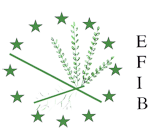SERE24
14th European Conference on Ecological Restoration
Bridging Science, Practice, and Policy of Nature Restoration
26-30 August 2024
Estonia – Tartu
European Capital of Culture 2024
With 670 participants from 47 countries, the 14th European Conference of Ecological Restoration SERE 2024 was held in Tartu, European Capital of Culture 2024. Taking into account that this law also includes the urban ecosystem, The European Federation of Soil and Water Bioengineering, has organized a session dedicated to Nature Based Solutions, Examples in SEB in Urban restoration. The session included EFIB interventions such as those by Daniel Arizpe (AEIP), “Online platform for Bioengineering projects”; Gianluigi Pirrera (AIPIN), “Civil protection through ecological restoration of the archaeological site of SELILUNTE and the Sacred Forest of ERICE”; or Paola Sangalli (president of EFIB), “(Examples of river rehabilitation using SWB in urban areas). Along with these interventions, it is worth highlighting the presentations of: the Lithuanian University, by Pablo Pereira, on urban ecosystem services. The University of Brest, with Sebastien Gallet, with an interesting project on the effects of light pollution on ecosystems; and the presentation of an Indian student on elective phytopurification of heavy metals. The Nature Restoration Law has incorporated the necessary restoration of our urban ecosystems. In this area, Nature-Based Solutions, such as Landscape Bioengineering, or other associated measures, such as the reduction of light pollution, can contribute to substantially improving our shared habitat.
SHORT COURSE:
Soil and Water Bioengineering as Nature-Based Solution. An introduction
As in the previous edition, Landscape Bioengineering by the hand of EFIB, AEIP and AIPIN, is present at the European Congress on Ecological Restoration SERE 2024 held in Tartu (Estonia), European Capital of Culture. Within the framework of the congress, the course Soil & Water Bioengineering (SWB) as Nature Based Solution took place. The Lithuanian, Dutch, Spanish and Italian participants have shown great interest in these techniques, both in the theoretical phase carried out in the classroom (at the Oekological Istitute) and in the practical part carried out outdoors with 1:20 scale models that showed traditional techniques and techniques related to the circular economy.







